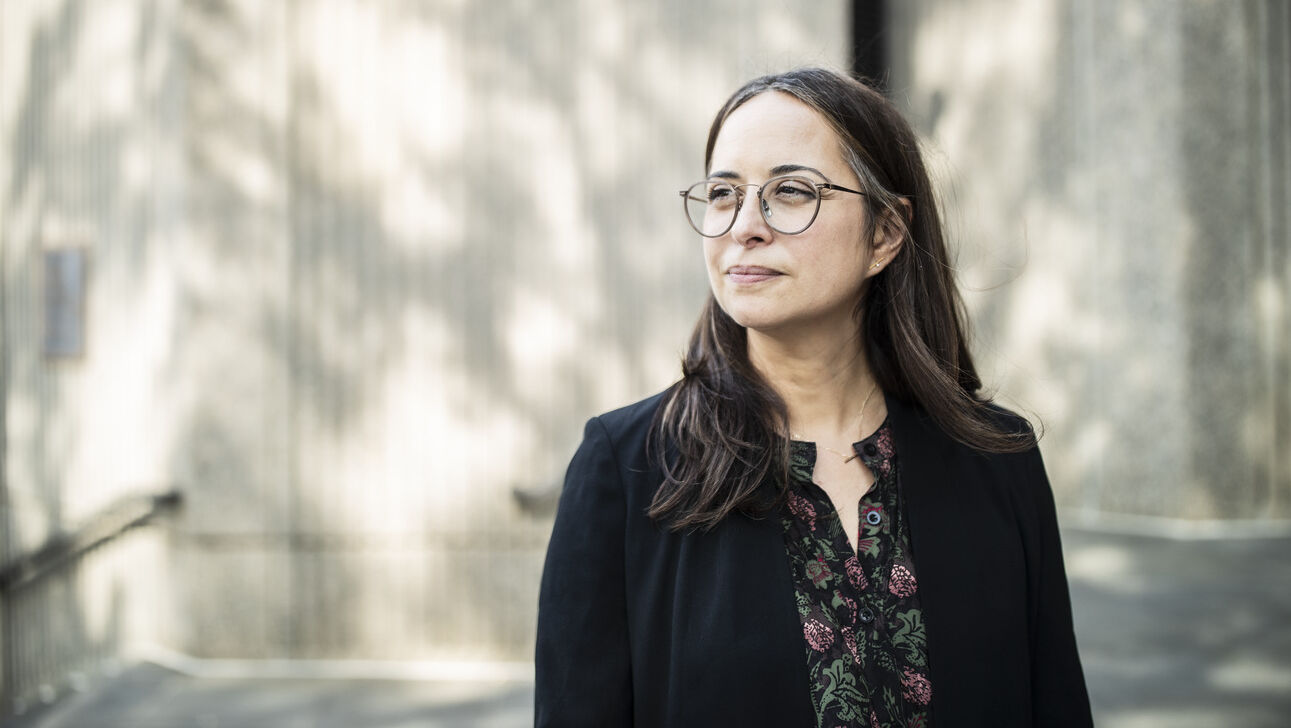Temple Law’s Rachel López is reimagining the legal system
Rachel López’s Participatory Law Fund and global human rights research is transforming who gets a voice in the legal system.

Rachel López, a professor at the Temple University Beasley School of Law, was recently named the inaugural Leonard Barrack ’68 Chair in Law. The appointment recognizes her groundbreaking work at the intersection of human rights, participatory law and restorative justice. It also marks a new chapter in her efforts to transform legal systems through scholarship that centers the lived experiences of those directly impacted by injustice.
At the core of López’s work is a belief that justice cannot be fully realized unless those most affected by the legal system help shape it. Acting on that conviction, she launched the Participatory Law Fund, a first-of-its-kind initiative designed to support collaborative research between legal scholars and directly impacted community members—especially those who have experienced incarceration, violence or systemic injustice.
The idea is simple but transformative. Instead of writing about people affected by the law, López believes legal academics should be writing with them.
A new model of justice
López has already demonstrated the potential of this approach in her own scholarship. In “Redeeming Justice,” published in the Northwestern University Law Review in 2021, she collaborated with currently and formerly incarcerated people in Pennsylvania to argue for a fundamental human right to redemption. The article contends that individuals should not be permanently defined by their worst acts, and that legal systems must evolve to reflect the possibility of personal transformation.
The publication has had real-world implications. The article was cited by a district attorney to support López’s co-author Terrell Woolfolk’s successful petition for commutation and spurred a campaign to end life without parole sentences—aptly called “death by incarceration” by her co-authors—before the United Nations. As a result, three U.N. expert bodies declared the sentence to be a violation of human rights, and López represented these experts in a case that is now pending before the Pennsylvania Supreme Court. Most recently, the Michigan Supreme Court referenced these U.N. determinations in a decision that extended constitutional protections from a U.S. Supreme Court decision that concluded life without parole for children was cruel and unusual punishment to young adults up to 21 years old. It has also sparked dialogue across legal and advocacy communities about the role of mercy and rehabilitation in the justice system.
She is continuing this work through a follow-up article, “Restoring Justice,” which she is co-authoring with Kempis Songster, a restorative justice practitioner who himself was formerly incarcerated, and Meredith Elizalde, the mother of Nick Elizalde who was a victim of gun violence outside Roxborough High School. Together, they are advocating for a new legal right: the ability of victims to pursue restorative processes instead of punitive responses. Their argument challenges both the retributive tendencies of the U.S. legal system and the limited avenues currently available for healing and accountability.
“In many ways, our criminal legal system assumes that the only way for survivors to get justice is through harsh punishment. But some survivors want something different,” López said. “They want to heal. They want to be heard. They want to understand why this happened.”
López’s vision for justice is both deeply personal and expansively global. As she continues co-authoring “Restoring Justice,” she is also drawing on insights from other parts of the world where communities are grappling with how to balance accountability, healing and democratic resilience.
A global perspective
López’s recent trip to Guatemala builds on nearly two decades of scholarship focused on justice after mass violence. Guatemala endured a long civil conflict marked by serious human rights violations. In recent years, the country has held trials for those responsible, drawing attention from the international community while sparking a complex response in Guatemala—galvanizing civic activism and generating political resistance. “This trip to Guatemala, funded by the Temple HARP grant, was an incredible opportunity for me to bring my research back to the people who pushed for accountability for human rights violations there—many of whom I interviewed previously,” López said.
López’s research found that holding leaders accountable can inspire greater civic engagement and public protest, but it can also prompt anti-democratic resistance that contributes to political polarization. These dynamics, she notes, are not unique to Guatemala. These findings are not unique to Guatemala, she explained. They’re emblematic of what happens across countries that have pursued prosecutions of state leaders.
López uses Guatemala’s experience as a powerful comparative lens. It provides a valuable opportunity to reflect on broader questions about the pursuit of justice, the limits of transitional legal systems, and the way accountability can reshape both public discourse and institutional structures.
For López, this global-local perspective has become a defining feature of her work. Guatemala is not only a focus of study, but also a source of insight for understanding legal challenges closer to home.
A shared commitment to justice
Back home in Philadelphia, López is bringing the lessons of her international work into the classroom. At Temple Law, she teaches courses on human rights advocacy, public interest law and criminal law, encouraging students to consider how legal systems operate across different cultural and political contexts.
The Participatory Law Fund is a natural extension of that teaching. It supports projects that bring students, faculty and community members together around a shared commitment to justice. It also reinforces Temple’s broader mission as a public research university—one that seeks to serve the common good through meaningful, real-world engagement.
Whether in conversation with formerly incarcerated co-authors or in dialogue with Guatemalan human rights advocates, López’s work is always grounded in the same principle: that justice is not something delivered from above, but something built in partnership with those most affected by its absence.
“Participatory law is not just about who writes the law,” López said. “It is about who gets to imagine what justice can look like.”
—Lina Duffy


